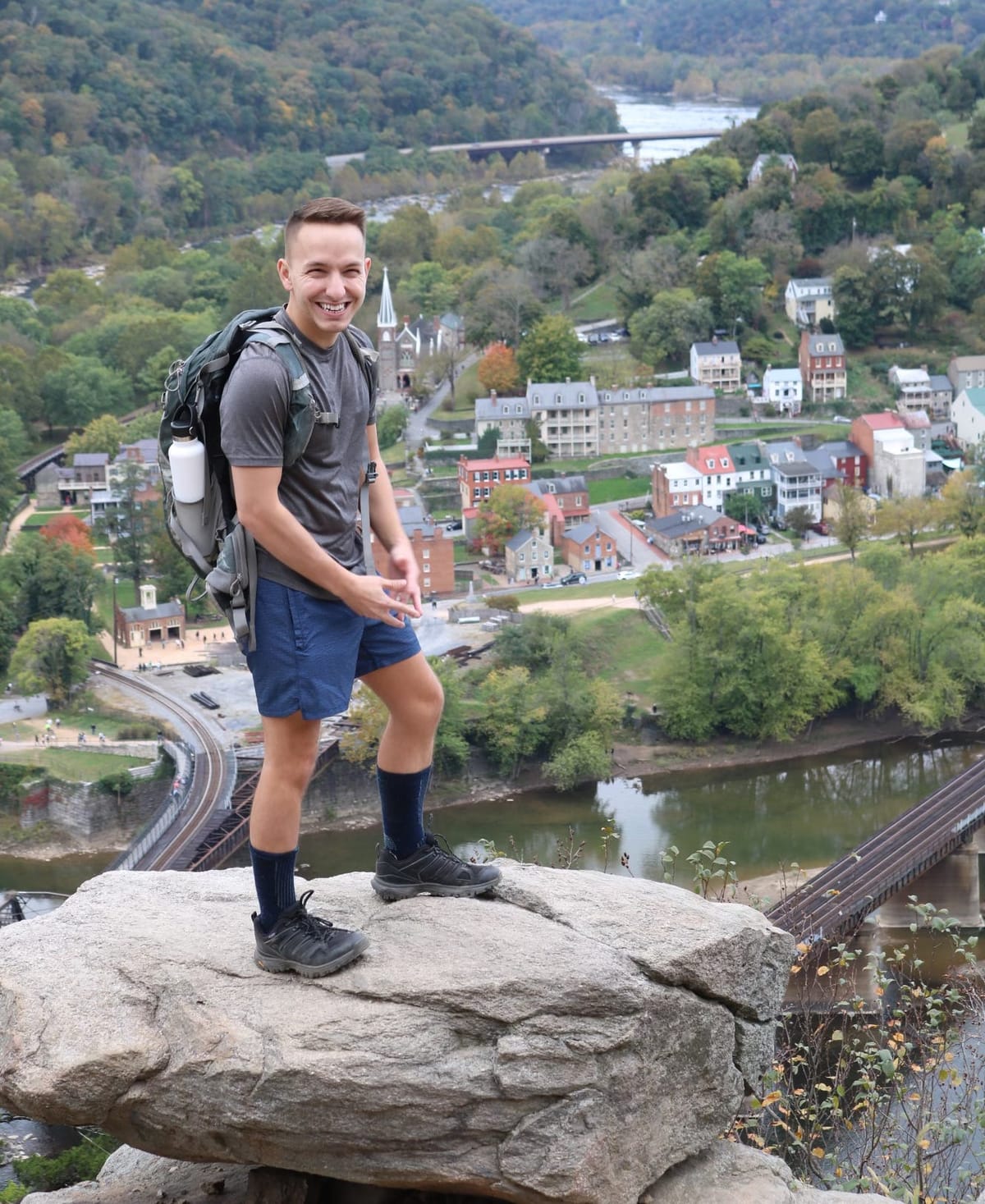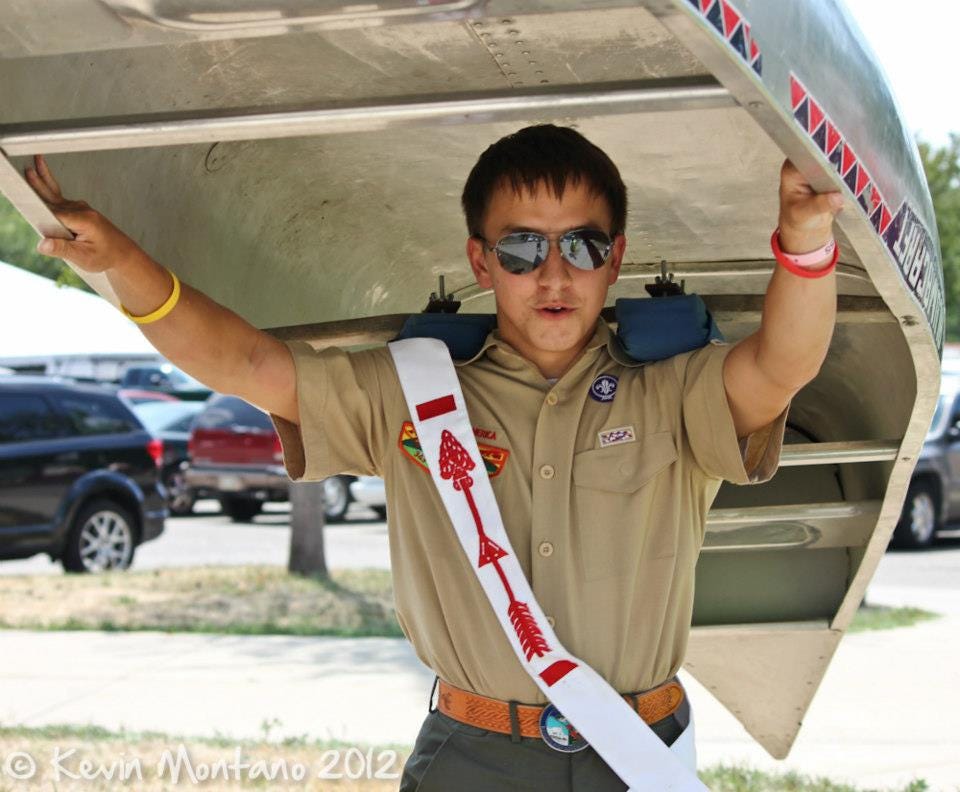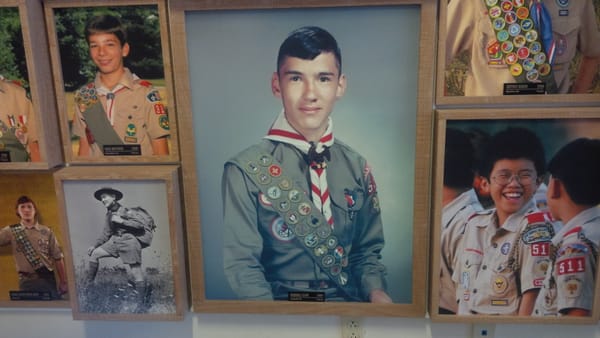Pride Profile: John Rehm
John Rehm says that Scouting made him the person he is today. But it also made it difficult to accept his sexuality. After a 5-year hiatus, he's back, this time fully comfortable in his own skin.

When I first started this newsletter, the Pride Profiles I shared were destined for the 2020 National Order of the Arrow Conference, which as we all know now, was cancelled due to the pandemic.
In the time since, I’ve kept the Pride Profiles coming and expanded the scope beyond members of the OA. Getting to know LGBTQ+ Scouters from across the country has been a true delight for me, and I hope for you as well. That’s why I’m so excited that, in preparation for NOAC this summer, I’ve ramped up the Pride Profile project in earnest again, and will have a bunch of them to share over the coming months.
We’re kicking things off this week with a profile of John Rehm, who you might know as the 2012 national chief of the OA. I asked Rehm to reflect on his experience as a gay scout, and to share his hopes for the future of Scouting.

Think back to your younger Scouting self, maybe as a first-time lodge officer. What would you tell that person?
I have a feeling my younger self would be too stubborn to listen to me ... but I'd tell younger John to take a moment to relax and to branch out thinking-wise. As a younger scout, I mainly related with people who held views similar to my own — which at the time were very insular. It wasn't until I started traveling the country as a national chief that I really started to experience views that challenged my way of thinking, and then moving to Washington, D.C. in 2015 that I truly started to appreciate and accept new perspectives.
What future do you want to see for LGBTQ+ people in Scouting?
I'd love to see a future where 1., youth and adults who identify as LGBTQ feel truly accepted and 2., take an active role in providing resources/services to help folks who are struggling with their sexuality. Looking at my path, my term as national chief in was right before the BSA formally voted to allow gay youth into the program. I remember hearing arguments as to why the ban should stay in place. At the time I wasn't completely accepting of my own identity and it definitely inhibited my ability to self-actualize. It took a nearly 5-year hiatus from Scouting to truly feel comfortable in my own skin.
Why is Scouting worth it?
Despite the BSA's slow progression and multiple changes, the program maintains its ability to prepare youth to be leaders. My biggest takeaway from Scouting is the ability to navigate and embrace being uncomfortable. There are situations in my personal life and work that make me and others feel uneasy. Instead of shying away, I've learned from Scouting how to acknowledge that uncomfortable feeling, address it and create a positive outcome (or at least a less bad one). Whereas left unaddressed, would likely lead to conflict.
What else should I know about your Scouting story?
Scouting truly made me the person I am today. My local council provided me with the support to become confident and less shy. Becoming an eagle scout forced me to see something all the way until the end. Being national chief showed me there's a world beyond central Pennsylvania and helped me realize I can be more than I ever thought I could be. It challenged me to get out of my comfort zone. That said, it also made it difficult to fully accept my sexuality. As mentioned before, it took a 5-year hiatus to figure things out and to feel safe coming back to the Scouting program. But the great thing about Scouting is that it's always there for you. Today, I'm happily serving two Capitol Hill units in the National Capital Area Council in Washington, D.C. as a unit commissioner.


